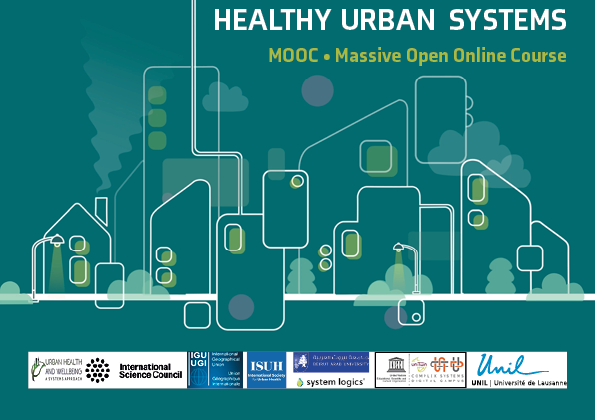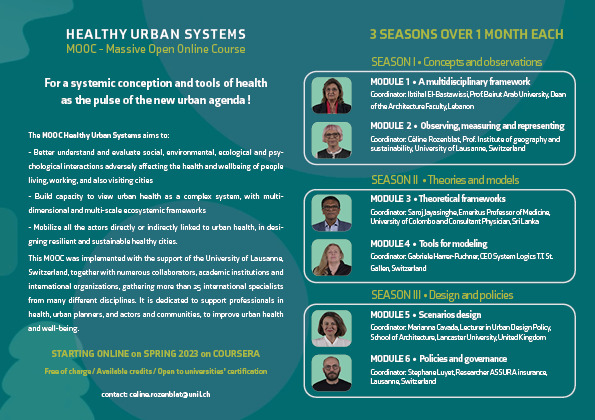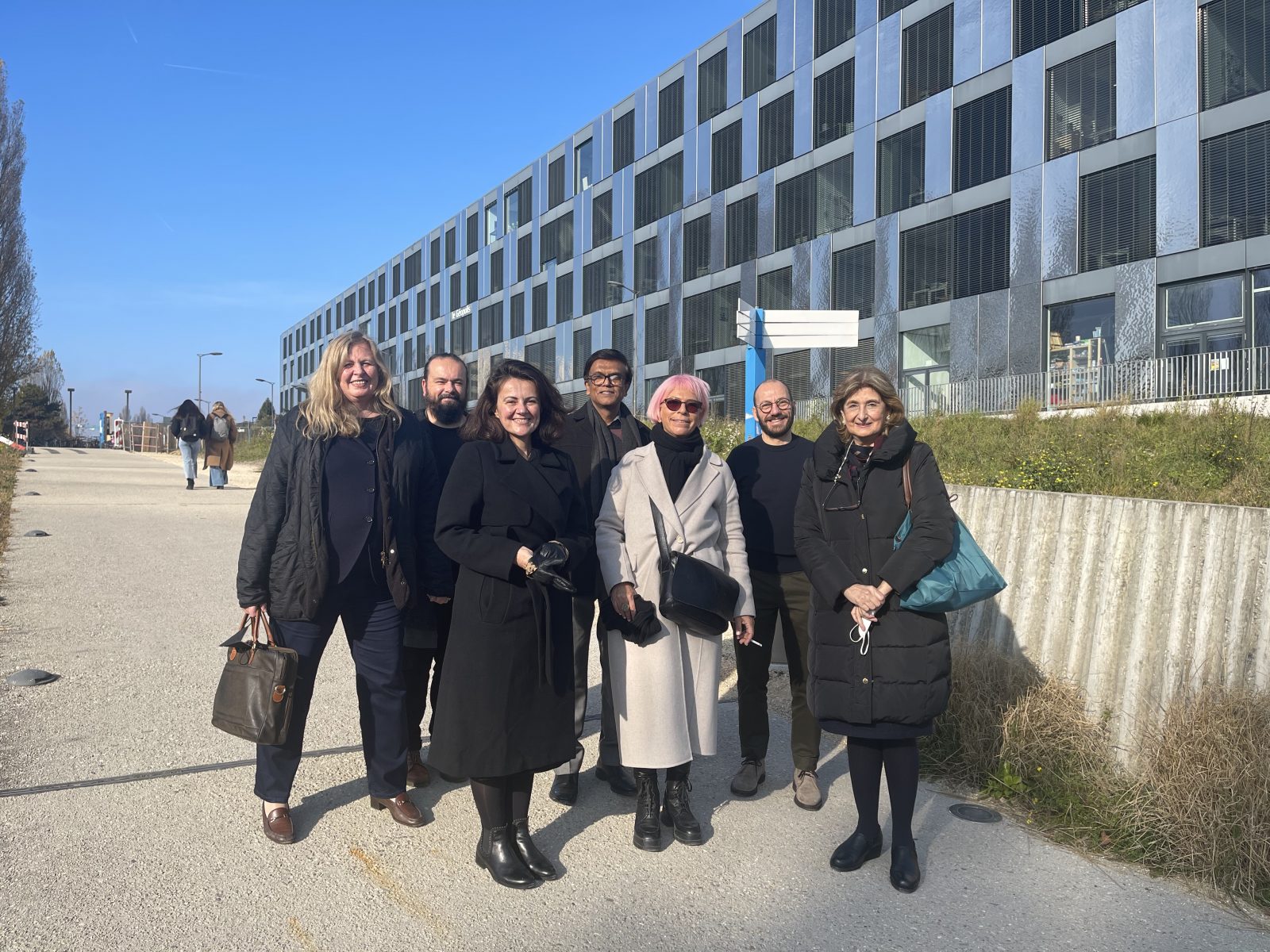

The MOOC Healthy Urban Systems is an action gathering numerous researchers and practitioners acting in the main worldwide institutions on Urban Heath:
– the International Science Council program on Urban Health and Wellbeing (UHWB) and the Institute of Urban Environment (IUE)
– the Chinese Academy of Science in Xiamen, China
– the International Society for Urban Health (ISUH)
– the HUE (Healthy Urban Environments) Collaboratory.
– the World Health Organization (WHO), Department of Environment, Climate Change and Health (HQ/ECH)
It is coordinated and produced by UNIL (IGD-FGSE, E-learning service, Foundation of the life-long training UNIL-EPFL)
2020: The first planned symposium was organized online
from 2nd to 4th of September 2020
It permitted to:
– Consolidate the 6 modules and designate one coordinator by module
– Specify the role of WHO
– Define 6 Main messages
– Discuss the Pedagogic tools
– Consolidate the institutional framework
2020-2021: The structure of modules was built and coordinated
6 modules’ coordinators:
MODULE 1: Ibtihal El-Bastawissi, Beirut Arab University, Dean Architecture Faculty, Lebanon
MODULE 2: Céline Rozenblat, UNIL, Lausanne, Switzerland
MODULE 3: Saroj Jayasinghe, Consultant Physician, Colombo, Sri Lanka
MODULE 4: Gabriele Harrer-Puchner, CEO System Logics T.T. St. Gallen, Switzerland, Expert System Modeling & Tools, Technical University Munich, DE
MODULE 5: Marianna Cavada, Lecturer in Urban Design Policy, at Lancaster University
Scenario building for the smart agenda, United Kingdom
MODULE 6: Stephane Luyet, Researcher ASSURA insurance, Lausanne, Switzerland

The coordination group in UNIL
November 2021
WHO and ISUH offer their collaboration, materials, and links with their actions, guidelines…. in every module
6 Main messages, leitmotiv all along the MOOC
1. Health is the pulse of the new urban agenda/Health must be included in all policies
2. Urban health must be approached as a complex system comprising multiple interacting dimensions (natural, social, psychological) and scales
3. It must be apprehended in a dynamic way & role of history
4. With a science-society strong collaboration/participation
5. Strategies for disease prevention
6. Encourage place-based policies in a multi-scale perspective
Targeted audience
=> Practitioners: Urban planners (transport, housing), health development professionals, government officials, insurances, industrial/social clusters
=> life-long learners / Initial training for post-graduates
2022: Shooting, building
2023: online production
The MOOC will be available on COURSERA – It will be free of charge
For credits, agreements are in discussion
